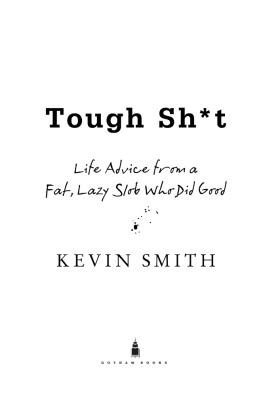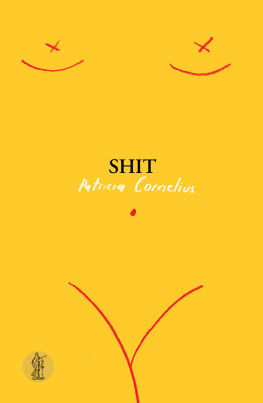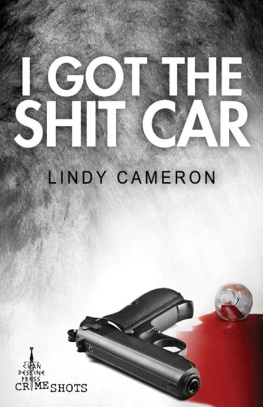
Behler Publications
Figuring Shit Out
A Behler Publications Book
Copyright 2015 by Amy Biancolli
Cover design by Yvonne Parks - www.pearcreative.ca.
Back cover photography by Danny Richardson
Interior photography by Dad II
All rights reserved. No part of this book may be reproduced or transmitted in any form or by any means, electronic or mechanical, including photocopying, recording, or by any information storage and retrieval system, without the written permission of the publisher, except where permitted by law.
Library of Congress Cataloging-in-Publication Data on file
FIRST PRINTING
ISBN 13: 978-1-933016-52-8
e-book ISBN 978-1-933016-46-7
Published by Behler Publications, LLC
USA
www.behlerpublications.com
Manufactured in the United States of America
I dedicate this small book to my children,
the bravest people I know
and to the memory of their father, who gave them to me.
Cops
Your life isnt over.
My dad says this. Hes in my kitchen, sitting on one of those 1950s metal-tube chairs, tapping his forefinger on the table. Do you hear me? Its not over.
I know, I assure him. I have the kids. They need me. Theyre my life now.
No, he says. I mean, YOUR life isnt over. Beyond the kids. Youll go on living, doing things. This isnt it.
I know that, I say.
OK, he replies, then gruntsmore of a brief hum. He only hums when he thinks Im full of shit.
No, really. Really, I say. Youre right. My life isnt over. I know that. I know that. So stop tapping your finger. BECAUSE I KNOW THAT.
Do I know that? How the hell can I possibly know that? Only a few hours earlier, Chris, my beloved husband of twenty years, jumped to his death off the roof of a parking garage a mile from our home. Cops came to the house in a pair to tell me, just like in the movies. Ding-dong, your husbands dead. Your life is over. Except its not.
So my dad sits in the kitchen, bucking me up. He arrived an hour earlier, after Id already broken the news to my two younger kids. My 15-year-old, Jeanne, was home sick and, seeing the police, collapsed on the staircase in tears. I fell around her, into her sobs, saying nothing and everything at once. Then I pulled 11-year-old Mitchell from school and told him and held him on the broad lawn outside, unsure if even holding him could help. Later tonight Ill have to tell Madeleine, my 17-year-old, on a gap year in Ecuador. That will be a monstrous phone call. I dread it.
These are the hardest things Ive ever done, ever will do, could ever imagine doing. Think of the difficult tasks in your past: climbing a mountain, writing a book, squeezing out a human being into the bright chaos of living. Telling children that their dad committed suicidethat yes, he loved them, yes, theyll get through this, and no, it wasnt their faultis incomprehensibly harder. As though you would even try to comprehend such a thing until it happens to you. You wouldnt. Theres no point. Stop trying.
Neighbors and friends are tracking in and out. Charitable souls have mowed the lawn. Hauled out the garbage. Cleared out the fridge. Organized the influx of food. A sign-up sheet for meals sits on the porch: soon well have dinner covered through November, and its now September 26. Someone, at some point, hands me a sandwich. Later, Ill be calling Madeleine to say the worst and tell her to pack for her flight home. Tomorrow my dad and I will visit the funeral home. The day after tomorrow: the wake. The day after the day after tomorrow: the funeral. The day after the day after the day after the day after the day after the day after tomorrow: my husband will still be dead.
My life isnt over. My dad is right. Im only 48; theres still some juice in the old girl. Still breathing for the time being. But what life will it be without my promised mate? Twenty years ago, we vowed to stick it out together, and stick it out we didknowing one of us would leave first. Just not so soon. Not this way. And dammit, not with cops.
Dad comes with me to the funeral home, along with my friend Alicia. Were brought to a small, bland, windowless room where we discuss wake details and pall bearers and church fees and cremation. Ive done this all a few times before, so I know what to say. And the most important thing to say is: I AM BUYING A JAR.
Saying this is imperative because, otherwise, the funeral home will try to sell you a $300 plastic urnand, lets face it, an urn is just a vase with a sealed top. A jar. Which you can buy for thirty or forty bucks or so at any home-decor shop at any strip mall in any suburb anywhere. When my mother died, my friend Tamar and I bought a lovely floral vase at the Pier One Imports on Wolf Road in Colonie, west of Albany. We buried Mamas ashes just fine in that thing. Capped it and kissed it, and down it went.
And so at the funeral home I declare my intentions thusly: I AM BUYING A JAR.
You can do that.
Funeral directors love to say this: You can do that, as though, excuse me, I cant do whatever the shizz I want.
We discuss other things. Photos and music for the memorial video. The priest for the funeral. The cemetery. I study this man doing the talking, a sleek late 30s model in a dark suit, and the quiet fellow sitting beside him, a kind, gray undertaker, who came as part of the package when two funeral homes merged last year.
The sleek one asks about caskets for the wake and funeral Mass. I say Id like to rent one. You can do that, he says. Then he goes on to explain that some people prefer not to put their loved ones into a coffin thats been previously occupied. Oh, I say. Not me. It makes no difference to me how many other corpses have lain in the thing. Me, Id like to rent one. And he says, again: You can do that. So affirming! And such shiny hair! I wonder idly about his product.
Still, I am forced to go on a tour of the casket room. I am not sure why I am forced to go on a tour of the casket room, and the little gray undertaker doesnt seem sure, either. He is almost apologetic as he takes me straight to the lone rental option. Oh, I say. Thats nice. Ill take that one. Then he guides me over to a strange, molded plastic container with rounded corners and a lid. It is roughly the size and shape of a picnic cooler. It costs several hundred dollars. The kind, gray undertaker explains its purpose: to hold the urnthat is, the jar that I plan on buying.
You mean, its an urn for the urn, I say.
Yes, says the little gray man.
Ummm, and why would I need an urn for the urn?
You wouldnt, he says, and for the first time in my life I want to French-kiss an undertaker.
I had always thought one urn was enough. I had always thought the whole point of cremation was reduce, reuse, recycle. Apparently not. Apparently it is just an excuse for yet more packaging. I dont plan on paying any more visits to funeral homes any time soon, but if I did, I would expect to be marched into a casket room lined with rows and rows of urns sized from small to large, like Russian nesting dolls. An urn within an urn within an urn, an infinite progression of crockery to impress the newly bereaved.
Later, with girlfriends so close I call them sistersPam, Jane, Tamar, and SueI visit that same Pier One and choose a jar for Chriss ashes. Recalling his green thumb, we select a cookie jar splashed with bright yellow flowers and a nice, knobby, nippled top. For $36 plus change. Perfecto.
In the parking lot, we laugh and hug and go our separate ways, and I head home with the jar on the floor behind me. Already, Ive lived two days my husband didnt, laughed at jokes he never heard, made decisions without his input. This makes no sense. It never will. And yet, I know to my core, with the irrational cellular conviction of a living organism at loose in the world, that I can and will and must propel inexorably forward.
Next page
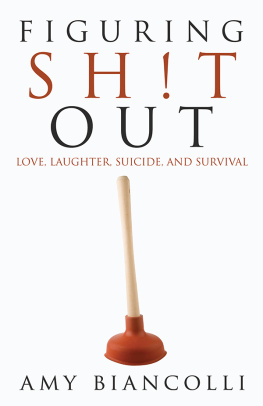
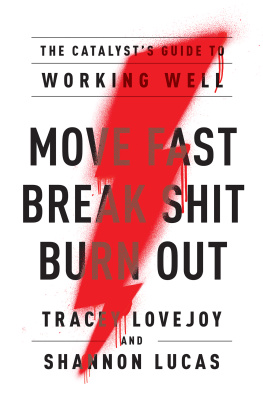

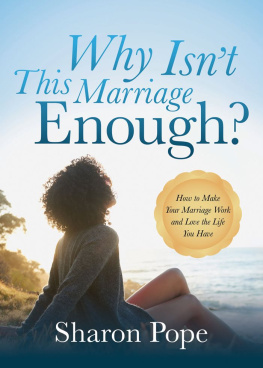
![Stack - It is just you, everythings not shit: [a guide to all things nice]](/uploads/posts/book/253795/thumbs/stack-it-is-just-you-everything-s-not-shit-a.jpg)

